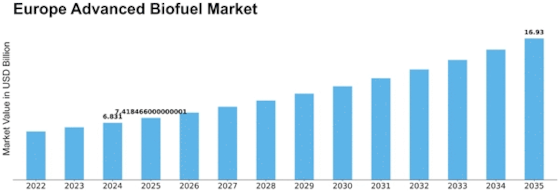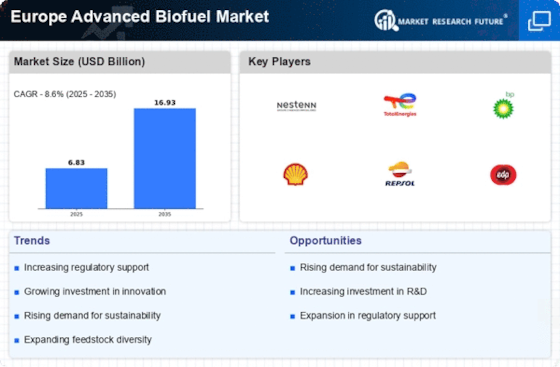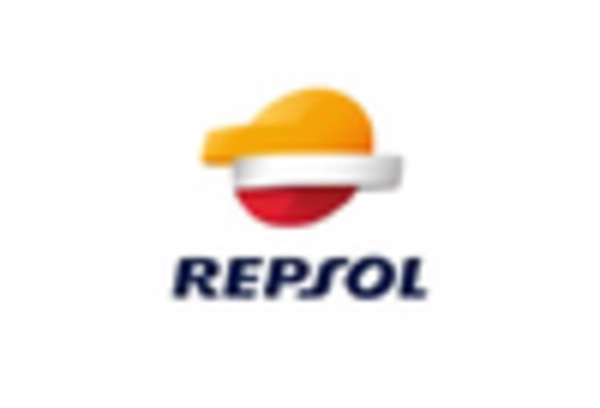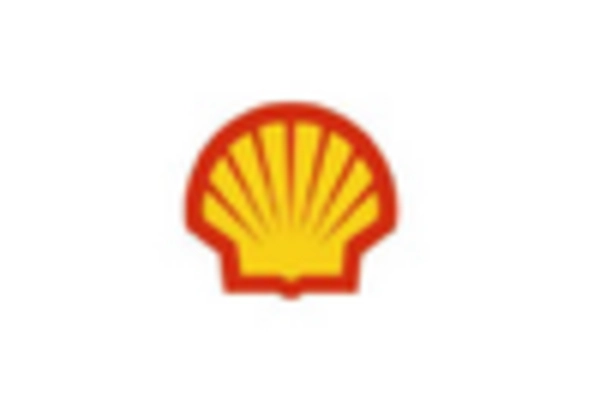Europe Advanced Biofuel Size
Europe Advanced Biofuel market Growth Projections and Opportunities
The Europe Advanced Biofuel Market is influenced by various market factors that play a significant role in shaping its growth and development. One key factor is government policies and regulations aimed at promoting renewable energy sources and reducing greenhouse gas emissions. In recent years, European governments have implemented policies such as renewable energy targets and carbon pricing mechanisms, which have provided incentives for the adoption of advanced biofuels. These policies create a favorable market environment for biofuel producers and investors, driving investment in research and development and encouraging the commercialization of advanced biofuel technologies.
Another important market factor is the availability of feedstock for biofuel production. Europe benefits from a diverse range of feedstock sources, including agricultural residues, energy crops, and municipal solid waste. The availability and cost of these feedstocks can impact the competitiveness of advanced biofuels compared to conventional fossil fuels. Technological advancements in biomass conversion processes have also expanded the range of feedstocks that can be used for biofuel production, improving the overall sustainability and efficiency of the biofuel supply chain.
Market demand and consumer preferences are also critical factors driving the growth of the Europe Advanced Biofuel Market. Increasing awareness of environmental issues and concerns about climate change have led to growing demand for low-carbon transportation fuels. Consumers are increasingly seeking alternatives to traditional fossil fuels, driving demand for advanced biofuels that offer environmental benefits and reduce dependence on imported oil. Additionally, government initiatives promoting the use of biofuels in transportation, such as blending mandates and tax incentives, are further stimulating market demand for advanced biofuels.
The availability and cost of competing fuels, such as conventional gasoline and diesel, also influence the Europe Advanced Biofuel Market. Fluctuations in oil prices can impact the cost competitiveness of biofuels, affecting consumer purchasing decisions and market demand. However, advanced biofuels offer the potential for price stability and reduced price volatility compared to fossil fuels, providing a strategic advantage in the market.
Infrastructure development is another key market factor shaping the Europe Advanced Biofuel Market. The widespread availability of biofuel distribution infrastructure, such as blending terminals and fueling stations, is essential for market growth and adoption. Investment in infrastructure projects, including transportation and storage facilities, is needed to support the expansion of the biofuel market and ensure efficient supply chain logistics. Government support and public-private partnerships play a crucial role in facilitating infrastructure development and overcoming barriers to market entry.
Market competition and industry dynamics also influence the Europe Advanced Biofuel Market. The market is characterized by a mix of established players and emerging startups, each competing to gain market share and achieve economies of scale. Technological innovation and advancements in biofuel production processes are driving competition and differentiation among market participants. Collaboration and partnerships between companies across the biofuel value chain are becoming increasingly common, enabling knowledge sharing and resource pooling to accelerate market development.
Overall, the Europe Advanced Biofuel Market is shaped by a combination of government policies, feedstock availability, market demand, fuel competition, infrastructure development, and industry dynamics. These market factors interact to create opportunities and challenges for biofuel producers and investors, influencing the pace and trajectory of market growth. Continued support from policymakers, advancements in technology, and collaboration within the industry will be essential for realizing the full potential of advanced biofuels in Europe's transition to a sustainable energy future.




















Leave a Comment